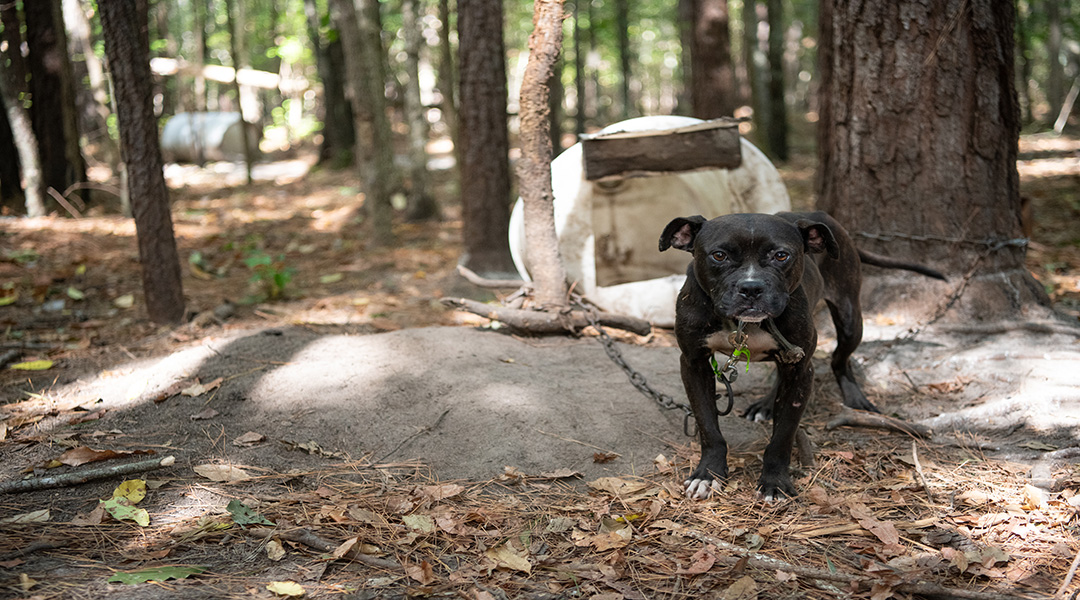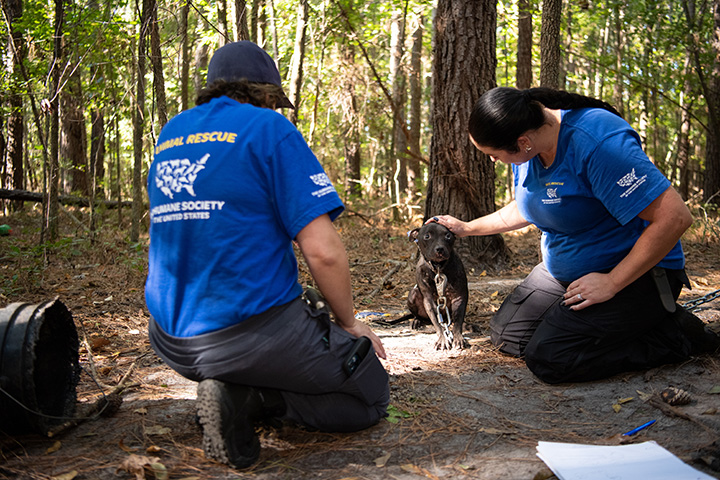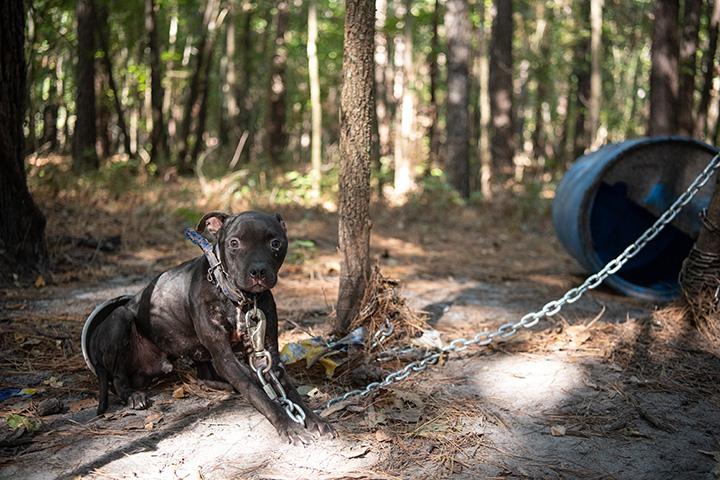The Humane Society of the United States assists federal authorities in rescuing dogs from an alleged dogfighting operation throughout multiple properties in South Carolina. (Photo courtesy of Meredith Lee/The HSUS)
More than 300 dogs were rescued from several Midlands counties on Monday and potentially could be held by law enforcement and shelters for years.
South Carolina’s process for handling abused animals is a unique one compared to many surrounding states.
The state doesn’t have an effectively of paying for seized animals, said Janelle Gregory, the S.C. state director of the U.S. Humane Society.
“It’s very difficult for law enforcement to work cases where they have to take in animals, when their local shelters that are responsible for managing the animals in their jurisdiction are completely full,” Gregory said.
What are called Cost of Animal Care laws help agencies such as the Humane Society defer the cost of taking in rescued animals. In many states with these laws, hearings are held to determine how the seized animals will be cared for, according to the American Society for the Prevention of Cruelty to Animals.
Such laws might require owners whose animals were seized based on evidence of animal cruelty to pay fees for the animal’s care or relinquish the animal to be put up for adoption in a shelter, Gregory said.
The cost of an animal rescue mission can be extensive in South Carolina.
“If we were to do this operation without federal partners, the animals that were obtained — lawfully seized — in this operation would have to go to our local shelters,” Gregory said. “(The animals would) be maintained in our local sheltering systems throughout the prosecution process, which could take years.”
If South Carolina had effective Cost of Animal Care laws, law enforcement would be able to manage animal cruelty cases more effectively, Gregory said.
Gregory says the Humane Society is working to get sponsors for legislation to ensure that rescued animals can be cared for properly by law enforcement.
The Humane Society and Bark Nation, a national non-profit, are helping to care for the animals rescued Monday. The dogs have been transported to a safe location, Gregory said.
“The very first thing that we’re doing is providing veterinarian care and giving them that kind of space to be properly cared for,” Gregory said. “They’re kind of in a recovery right now, and they’re not available for adoption or anything else like that because the court process is still pending.”
Janette Reever, a Humane Society senior specialist, said the No. 1 goal in these operations is to rehabilitate the animals.
“It’s important to understand that these dogs are victims of heinous crimes and can suffer PTSD just like a human does,” Reever said.
While the dogs may not be adoptable for years, the vast majority of rescued animals go on to lead happy lives.
“A lot of the time, these dogs can be placed in a multi-dog home after they’re spayed, neutered and evaluated,” Reever said. “So we work with placement partners … and then work with the owners after they adopt to make sure that it’s a lifetime home that they’re going into.”




